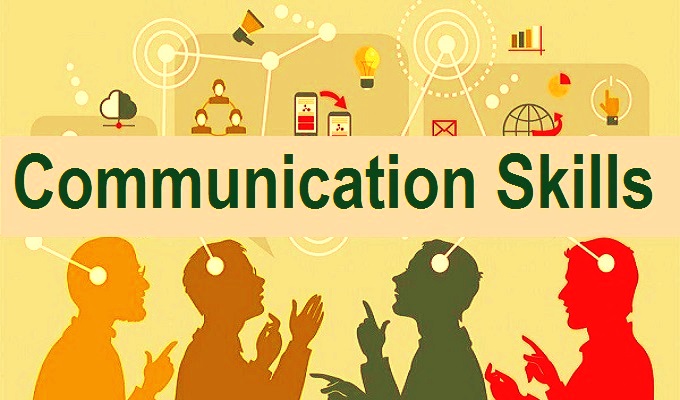

What is the significance of psychology and strong communicative skills in the field of journalism, and how do these attributes contribute to effective storytelling and reporting?
Psychology and strong communicative skills play a crucial role in the field of journalism, as they contribute to effective storytelling and reporting in several ways.
1. Understanding the audience: Psychology helps journalists understand the mindset, preferences, and needs of their audience. By applying psychological principles, journalists can tailor their storytelling to resonate with the target audience. For example, they can use emotional appeals, relatable anecdotes, or persuasive language to engage readers or viewers. By understanding the psychology of their audience, journalists can effectively communicate their message and ensure it has the desired impact.
2. Building rapport and trust: Strong communicative skills are essential for journalists to build rapport and trust with their sources and the public. Effective communication involves active listening, empathy, and the ability to ask probing questions. By demonstrating genuine interest and understanding, journalists can establish a rapport with their sources, encouraging them to provide more accurate and detailed information. Additionally, strong communication skills help journalists to navigate sensitive topics or challenging interviews, enabling them to extract valuable insights and perspectives.
3. Ethical reporting: Psychology and communication skills are crucial in maintaining ethical standards in journalism. Journalists must be aware of the potential biases, prejudices, or stereotypes that may influence their reporting. By understanding the psychological factors that can impact their own perspectives, journalists can strive for objectivity, fairness, and accuracy in their storytelling. Effective communication skills also enable journalists to present complex information in a clear and unbiased manner, ensuring the audience receives a balanced view.
4. Framing and storytelling: Psychology informs journalists about how people process and interpret information. Journalists can use this knowledge to frame their stories effectively, emphasizing certain aspects or angles to shape public perception. For example, framing climate change as an urgent crisis rather than a long-term issue can evoke a stronger emotional response and prompt action. By understanding the psychological impact of framing, journalists can engage their audience and motivate them to take interest or action.
5. Impactful storytelling: Effective storytelling requires journalists to engage their audience on an emotional level. Psychology provides insights into human emotions, motivations, and cognitive processes, which can be leveraged to create compelling narratives. Whether it's through personal stories, vivid descriptions, or powerful imagery, journalists can use psychological techniques to evoke empathy, create a sense of urgency, or inspire action. By combining psychology and strong communication skills, journalists can craft stories that resonate with their audience, leaving a lasting impact.
In conclusion, psychology and strong communicative skills are essential attributes for journalists as they contribute to effective storytelling and reporting. By understanding the audience, building trust, maintaining ethical standards, framing stories, and creating impactful narratives, journalists can engage their audience, shape public perception, and drive positive change.
Related Posts
© 2025 Invastor. All Rights Reserved

User Comments
Valeria Holland
a year ago
Well said, everyone. As we wrap up, it's evident that the interplay between psychology and communicative skills is what breathes life into journalism, making it an influential force in our society.
Roman Banks
a year ago
Journalism is about more than just relaying facts – it's about connecting with people, evoking emotions, and inspiring change through well-crafted stories.
Christopher Mccoy
a year ago
It's clear that journalism is a dynamic field that requires continuous learning. Staying attuned to the evolving ways people consume information and employing psychological insights will ensure journalism's relevance.
Ezekiel Dean
a year ago
Sensitivity and ethical considerations are at the core of responsible journalism. Journalists need to navigate delicate topics without causing harm or sensationalizing.
Mary Greene
a year ago
I think psychology also helps journalists approach sensitive subjects with empathy. Understanding the potential impact of their words on individuals and communities is crucial for responsible reporting.
Samantha Hoffman
a year ago
But let's not forget about communicative skills. In a world flooded with information, journalists need to capture and maintain their audience's attention. Clear, concise, and compelling communication is essential.
Elias Hart
a year ago
Psychology also comes into play when framing stories. Knowing how to present information in a way that resonates with readers' emotions can influence their understanding and engagement.
Joseph Hansen
a year ago
I completely agree, Psychology helps journalists dig deeper into their subjects, uncovering the underlying reasons behind events and actions. This understanding can lead to more nuanced and insightful storytelling.
John Gardner
a year ago
Absolutely! Journalism is more than just presenting facts – it's about understanding human behavior, motivations, and emotions that drive the stories we tell.
Maeve Mason
a year ago
Let's dive into the world of journalism. Have you ever considered how psychology and strong communicative skills play a pivotal role in this field?